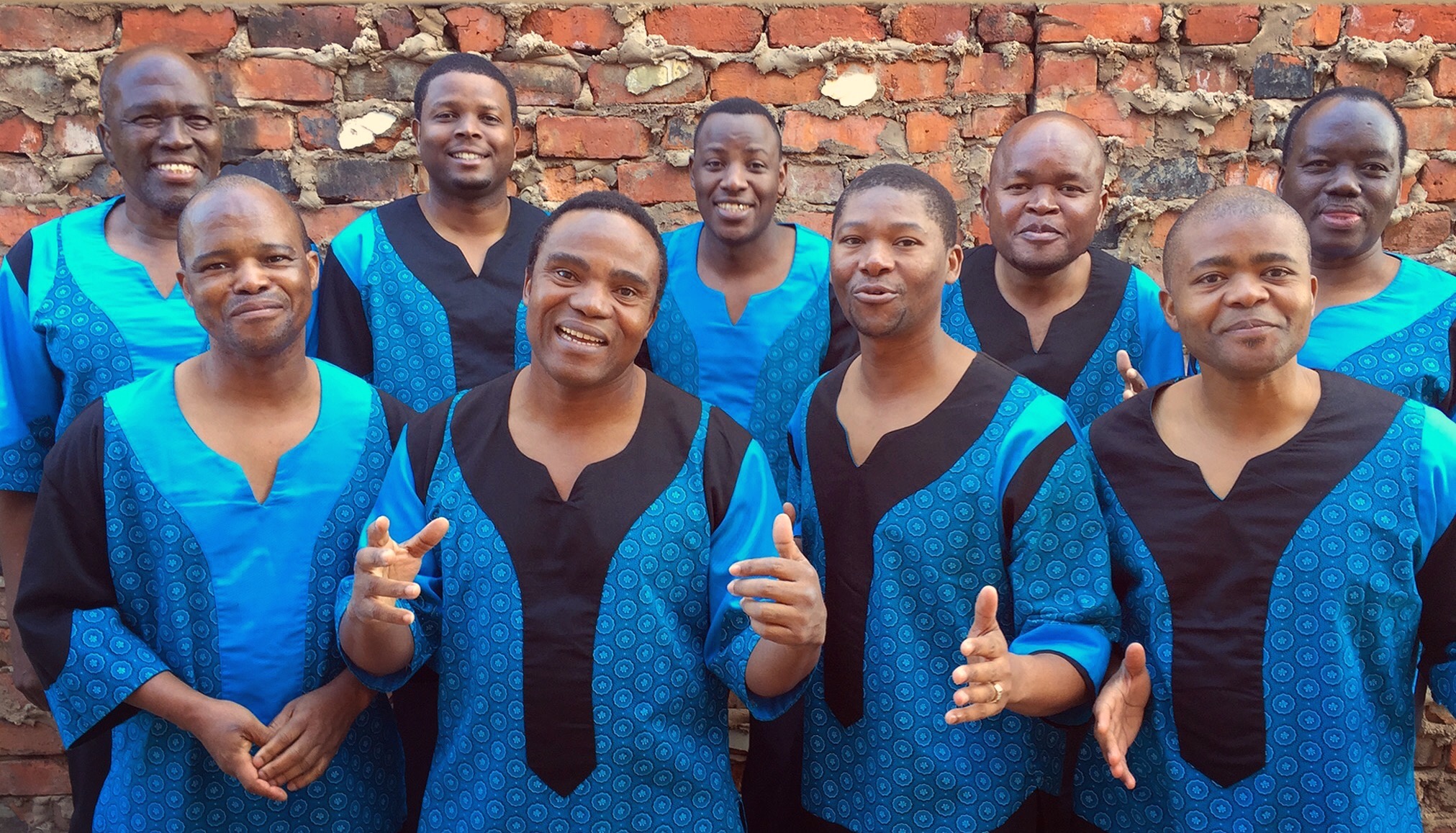Ladysmith Black Mambazo elevated the spirits of those in attendance at BB Kings on March 8th with a show that featured generations of singers. The passing of the torch from the elders of the group to younger members is evidenced by the title of their most recent album, last year’s Walking In The Footsteps Of Our Fathers. Albert Mazibuko, who has been a member since 1969, explained in an interview before the show that for the first time the ‘junior choir’ led the charge as far as the song selection and the arrangements on the album. The junior choir includes founder Joseph Shabalala’s sons Sibongiseni Shabalala, Thamsanqa Shabalala, and Thulani Shabalala.
The group whose first incarnation appeared in 1960 resulted from a recurring dream that Joseph Shabalala had which taught him how to blend voices as well as how to breathe properly while mixing dancing with singing. His vision was unique and Ladysmith Black Mambazo quickly differentiated themselves from other vocal groups rooted in Zulu traditions. Of course a huge moment in the history of the band, and one that catapulted them to international fame, was teaming up with Paul Simon on the Graceland album released in 1986. The sessions in London produced Homeless and Diamonds on the Soles of Her Shoes and led to vastly expanded opportunities for touring and working with musicians from around the world.
It was not a big part of the conversation but I did ask Albert Mazibuko to offer a kind of last word to those who condemn or condemned both Ladysmith Black Mambazo and the man from Flushing for breaking the cultural boycott of South Africa under Apartheid. He stated simply that those people were/are confused as the point of the boycott was to prevent artists from visiting the country and making money while the status quo continued. The collaboration with Paul Simon gave them a platform to talk about the oppression that was going on at that time. The history of South Africa as well as the group’s friendship with Nelson Mandela until his death in 1999 and their continued role as cultural ambassadors suggest any criticism they received was misplaced. The Apartheid system was officially abolished in 1991 and, as Mazibuko remarked, the message of Ladysmith Black Mambazo evolved from struggle to development.

